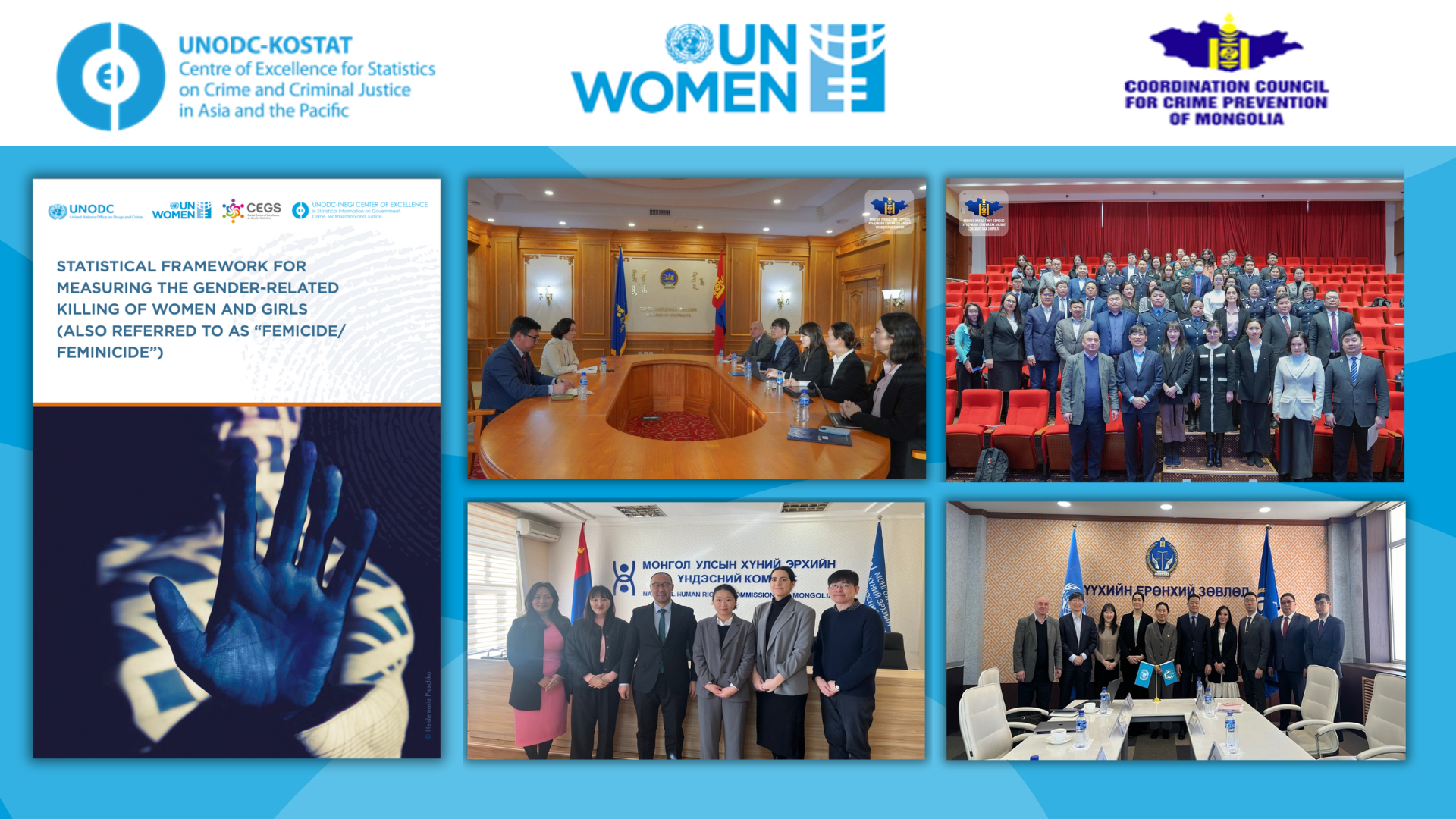
Ulaanbaatar (Mongolia), 3-8 March 2024 – The CoE, in partnership with the UN Women Centre of Excellence for Gender Equality and the Coordination Council for Crime Prevention of Mongolia (CCCP), has initiated the piloting phase of the Statistical Framework for Measuring the Gender-Related Killing of Women and Girls (also referred to as “femicide/feminicide”) in Mongolia.
Developed jointly by the UN Office on Drugs and Crime (UNODC) and UN Women in 2019, the Framework received endorsement from the UN Statistical Commission in 2022. Subsequently, UNODC and UN Women were tasked with piloting it in volunteer countries worldwide to facilitate the implementation process.
Prior to this initiative, the CoE had established a relationship with Mongolia through workshops focusing on the implementation of the International Classification of Crime for Statistical Purposes (ICCS) and Crime Victimization Survey (CVS). The Framework builds upon the ICCS by centering on femicide while integrating a gender perspective into crime statistics. Mongolia's decision to participate in this pilot program underscores the ongoing partnership between the country’s crime and criminal justice statistics system and UNODC.
The kick-off meeting, held on Monday, was attended by key national institutions responsible for the production, collection, analysis, and dissemination of crime-related statistics, alongside representatives from NGOs, CSOs, and academia. During this session, the CoEs provided insights into Violence Against Women in Mongolia, the Framework, and its implementation process. Additionally, four national institutions—the National Police Agency, the State General Prosecutor’s Office, the Judiciary General Council, and the National Statistics Office—delivered presentations outlining their practices for collecting and producing intentional homicide/femicide data, shedding light on their mandates and addressing encountered challenges. A total of 65 participants attended the meeting.
Following the kick-off, the CoE conducted a series of bilateral meetings with relevant institutions to assess homicide data collection. These meetings aimed to gather information about the homicide data collection systems and identify necessary adjustments to align the data with the Framework.
Upon completion of the data assessment, the organizing institutions will design a tailored workshop to address Mongolia's specific needs and compile a list of recommendations for aligning the country’s homicide data collection with the Framework.
Further information on the CoE can be found here, X @CoE_UNODC and Facebook @UNODC.KOSTAT.CoE.